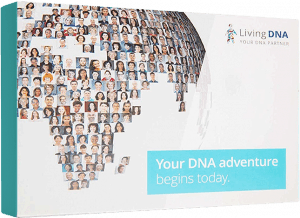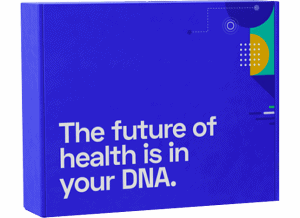Navigating the landscape of genetic testing for health can be a daunting task. With the explosion of companies offering a variety of services, it’s easy to become overwhelmed and confused. You may find yourself grappling with questions such as what tests are available, what they can reveal about your health, and how to interpret the results. The uncertainty can leave you feeling frustrated and unsure of where to turn.
As someone who has spent considerable time studying the ins and outs of genetic testing, I understand these challenges. I’ve dedicated myself to demystifying this complex field, making it more accessible to everyday individuals. In this article, I’ve gathered all the essential information on genetic health testing, breaking it down into manageable, clear, and concise points that will help you make informed decisions.
One option that may interest you is LivingDNA, a company that offers affordable and detailed genetic testing for health. In addition to providing insights into your genetic makeup, LivingDNA goes a step further by offering personalized meal and exercise plans.
Short on Time? Here’s All You Need to Know About Genetic Testing for Health
- What is genetic testing for health? It’s a process that examines your DNA and gives you information about your risk for diseases, dietary needs, and more. Find more detailed information about genetic testing here.
- How does genetic testing for health work? The process is quite simple; all you have to do is collect your saliva either in a lab or at home (with a DNA kit) and send it to a lab. Get a step-by-step guide here.
- Are there any risks of genetic health testing? Even though it’s perfectly safe, there are a few risks such as the emotional impact and the risk of inaccuracies. We talk about more risks here.
- What to do after getting your results? You have a few options, such as taking the results to a medical professional for further assistance, or simply applying any meal or exercise plans. Learn more about your options here.
- Is genetic testing for health accurate? If you choose a reputable company or your medical professional, the answer is yes. Read more about it here.
- Where can you get genetic testing for health? There are a few options, but our favorite is doing an at-home health test since it’s private and simple, with quick results. Check out the most reliable health test kits here.
What Is Genetic Testing for Health?
Genetic testing for health offers a deep dive into your DNA, the intricate blueprint that dictates the structure and functioning of your body, providing a comprehensive overview of your biological composition.
This type of testing serves multiple purposes, including the identification of potential risks for specific diseases, predictions regarding how your body may react to particular medications, and the tracing of your ancestral origins. It focuses on the examination of specific genes, chromosomes, or proteins to gain insights into your susceptibility to various health conditions.
To begin the test, you’ll provide a sample of blood, saliva, or another tissue. The DNA extracted from this sample undergoes careful analysis in a laboratory. The resulting insights are valuable for both you and your healthcare provider, allowing for tailored lifestyle and medical strategies to address your future health needs effectively.
It’s essential to understand that this form of genetic testing doesn’t diagnose current illnesses but instead focuses on identifying genetic predispositions. This proactive approach to healthcare empowers individuals to manage their health proactively under professional guidance. This is particularly beneficial for those with a family history of specific health conditions, as it enables the implementation of preventive measures whenever possible.
What Does Genetic Testing for Health Look For?
Genetic testing for health looks for variations or mutations in your genes that might indicate a higher risk for specific diseases or conditions. By examining these specific markers, the tests can provide insights into:
- Predisposition to Certain Diseases: This includes information about your risk for diseases such as cancer, heart disease, Alzheimer’s, or diabetes. By identifying these risks early, you can work with healthcare providers to take preventive measures.
- Carrier Status for Hereditary Conditions: Genetic testing can identify if you are a carrier for certain genetic disorders like cystic fibrosis or sickle cell anemia. This information is particularly valuable if you’re planning to have children, as it can inform reproductive decisions.
- Pharmacogenomics: This relates to how your body processes medications. Understanding your genetic makeup can guide doctors in prescribing the most effective medications at the right doses for you.
- Nutritional and Lifestyle Choices: Some tests may offer insights into how your body responds to diet and exercise, helping you make personalized health and wellness decisions.
What Are The Different Types of Genetic Testing for Health?
Genetic testing for health is not a one-size-fits-all approach, and there are several different types to suit various needs and objectives:
- Predictive and Pre-symptomatic Testing: These tests are used to detect gene mutations associated with disorders that might appear later in life, even if you show no symptoms now.
- Diagnostic Testing: If you have symptoms of a genetic disorder, diagnostic testing can confirm or rule out a suspected genetic condition.
- Carrier Testing: If you have a family history of a genetic disorder, carrier testing can show whether you carry the gene for that disorder.
- Prenatal and Newborn Screening: These tests are conducted during pregnancy and right after birth to detect any genetic disorders in the fetus or newborn.
- Pharmacogenomic Testing: As mentioned earlier, this type of testing helps doctors understand how your body processes certain medications.
- Nutrigenomic Testing: This type explores how your genetics might influence your response to nutrients, helping you make informed dietary choices.
- Ancestry Testing: While not strictly related to health, some tests can also provide information about your genetic ancestry.
Each of these types serves different purposes and provides various insights into your genetic health. Selecting the right test depends on what you and your healthcare provider are looking to understand. Consulting with a genetic counselor or other healthcare professionals is often the best way to determine the most appropriate type of genetic testing for your individual needs.
How Does Health Genetic Testing Work?
The process of health genetic testing can be broken down into several key steps, making it easier for you to understand what to expect:
- Consultation with a Healthcare Provider: Discussing your family history, personal health goals, or any specific concerns with a healthcare provider or genetic counselor helps in selecting the right test for you. You can also get an at-home test kit and collect your sample in the privacy of your home. It’s usually very simple to collect a sample, and the results arrive quickly.
- Sample Collection: Depending on the type of test, a sample of blood, saliva, or other body tissues will be collected. This can usually be done in a healthcare provider’s office or at home with a specialized kit.
- Laboratory Analysis: The sample is sent to a laboratory where trained technicians extract and analyze the DNA to identify specific genetic variations or mutations.
- Interpretation of Results: A healthcare provider or genetic counselor interprets the results, translating the complex genetic data into understandable information related to your health.
- Follow-up Care and Recommendations: Based on the results, specific recommendations or preventive measures may be offered to guide your healthcare decisions.
What Are The Risks of Health Genetic Testing?
While genetic testing provides valuable insights into your health, it also carries certain risks and considerations:
- Privacy Concerns: Ensuring that your genetic information remains confidential is vital. There might be concerns about who has access to this sensitive information and how it might be used.
- Emotional Impact: Learning about your risk for certain diseases can be overwhelming or anxiety-inducing, necessitating support from mental health professionals.
- Possibility of Inaccurate Results: No test is perfect, and there might be a chance of false positives or negatives that could lead to unnecessary stress or medical interventions.
- Potential Family Implications: Discovering that you carry a gene for a hereditary disease might have implications for family members, possibly affecting their health or life decisions.
- Insurance Considerations: In some jurisdictions, there might be concerns about how genetic testing results could influence insurance coverage or employment.
What Can You Do After Getting Your Results?
After receiving your genetic testing results, you have several options and considerations:
- Consult with Professionals: A follow-up appointment with a healthcare provider or genetic counselor ensures that you fully understand the results and their implications.
- Make Informed Healthcare Decisions: The information might guide you in making lifestyle changes, seeking specialized medical care, or taking preventive measures to manage potential health risks.
- Consider Family Communication: If your results have implications for family members, you might decide to discuss them with your relatives, possibly encouraging them to consider testing as well.
- Evaluate Insurance and Legal Aspects: Depending on your location and specific findings, you may want to consider the legal and insurance aspects related to your genetic information.
- Ongoing Monitoring and Care: In some cases, regular check-ups or monitoring may be advised to keep an eye on potential health issues related to the genetic findings.
Is Genetic Testing for Health Accurate?
When it comes to genetic testing for health, accuracy is a critical factor that can influence the reliability of the results. Here’s a look at the key aspects to consider:
- Technical Accuracy: Modern genetic testing techniques are highly sophisticated, and labs often employ stringent quality control measures. Generally, the identification of specific genetic markers or mutations is considered accurate.
- Interpretation Challenges: While the detection of specific genetic variations might be precise, interpreting what those variations mean for your health can be more complex. Not all genetic variations have clear or known links to health conditions, and science is continuously evolving in this field.
- Dependence on Test Type and Quality: Different types of genetic tests may have varying levels of accuracy. Furthermore, the quality of the laboratory performing the test can influence the reliability of the results. Accredited laboratories with high standards are more likely to produce accurate findings.
- Contextual Limitations: Genetic testing provides information about your inherent risk based on your genes, but it does not account for other influential factors like environment, lifestyle, or family history. Therefore, the overall picture of your health risk may be more nuanced.
- Potential for Errors: Though rare, errors can occur at any stage of testing, from sample collection to laboratory analysis. Following proper procedures and working with reputable providers can minimize these risks.
Where Can You Get Accurate Genetic Testing for Health?
Finding a reliable source for genetic testing is crucial, as it ensures that the results are both accurate and meaningful for your healthcare decisions. Here are the main avenues where you can obtain genetic testing for health:
- Healthcare Providers and Specialized Clinics: Many hospitals, healthcare providers, and specialized genetic testing clinics offer genetic testing services. Working with these professionals ensures that the testing is tailored to your individual needs and that you have expert guidance in interpreting the results.
- Accredited Laboratories: It’s essential to choose a laboratory that adheres to recognized accreditation standards. Look for certifications and quality assurance programs that indicate the laboratory meets rigorous scientific and quality control criteria.
- At-Home DNA Test Kits: Increasingly popular, at-home DNA test kits provide an accessible way to explore your genetics. Reputable companies like LivingDNA offer convenient testing from the comfort of your home. These kits usually involve a simple saliva sample that you send back to the lab for analysis.LivingDNA, for instance, is known for its accuracy and the breadth of information it provides, making it a preferable option for many individuals.
- Genetic Counselors and Medical Geneticists: If you have specific concerns or a family history of genetic disorders, consulting with a genetic counselor or medical geneticist can guide you to the most appropriate test and provider.
- Research Studies: Sometimes, universities and research institutions conduct genetic testing as part of scientific studies. Participation in these studies might allow you to access testing, but it’s essential to understand the scope and limitations of the research.
Our Top DNA Kits For Genetic Health Testing Reviewed
1. LivingDNA – Best Kit for Genetic Health Testing Overall
| 💲Price | $90.00 |
| ⏲Results in | 4 to 6 weeks |
| 💧Type of sample taken | Cheek swab |
| 📒Services | Ancestry & Health |
| ⭐Best feature | Actionable health and wellness insights such as meal and exercise plans |
Its health and wellness services encompass everything from understanding genetic predispositions to diseases to personalized fitness and nutritional guidance. By examining your genetic makeup, LivingDNA can provide tailored recommendations that align with your body’s unique characteristics.
The health risk reports offered by LivingDNA delve into your genetic susceptibility to certain conditions such as heart disease, diabetes, and specific types of cancer. The detailed analysis allows for a deeper understanding of potential health risks, enabling proactive measures and preventive care. By identifying risks early on, you can work together with your healthcare provider to mitigate potential health challenges, taking advantage of genetics as a preventive healthcare tool.
LivingDNA’s services also include pharmacogenomic testing, a cutting-edge field that evaluates how your genes might influence your body’s response to medications. This information can be vital for healthcare providers, allowing them to prescribe medications that are most likely to be effective and minimizing the risk of adverse reactions. Such a personalized approach to medication can improve treatment outcomes and overall well-being, aligning healthcare strategies with individual genetic profiles.
Their nutrigenomic reports provide insights into how your genetics may influence your response to different nutrients and dietary patterns. Meanwhile, fitness-related genetic information can guide personalized exercise regimens that align with your body’s natural tendencies and needs.
2. Nebula Genomics – A Comprehensive Choice for Genetic Health Exploration
| 💲Price | $249.00 |
| ⏲Results in | 6 to 8 weeks |
| 💧Type of sample taken | Saliva sample |
| 📒Services | Ancestry & Health |
| ⭐Best feature | Ultra-detailed reports on your health, with whole genome sequencing |
One standout feature of Nebula Genomics is its health risk assessment. By analyzing specific genetic markers, they can identify your potential risk for certain diseases like heart problems, diabetes, and more. This information is helpful for understanding what health issues you might be more prone to, allowing you and your healthcare provider to take early steps to prevent or manage those conditions.
In addition to health risk reports, Nebula Genomics also offers insights into how your body might respond to different medications. This pharmacogenomic testing helps guide healthcare providers in prescribing the right medications for you. By aligning treatments with your genetic makeup, Nebula Genomics supports a more personalized approach to healthcare, aiming to improve effectiveness and reduce side effects.
Beyond health risks and medication responses, Nebula Genomics extends its services to include wellness aspects such as fitness and nutrition. By exploring how your genes influence your body’s response to different foods and exercises, they provide personalized recommendations for your diet and workout routines. This tailored approach helps you make choices that align with your body’s unique needs, making it easier to achieve your health and wellness goals.
Get Started With Nebula Genomics
3. Dynamic DNA Labs – Tailoring Health Insights to Your Genetics
| 💲Price | $199.00 |
| ⏲Results in | 4 to 6 weeks |
| 💧Type of sample taken | Cheek swab |
| 📒Services | Ancestry & Health |
| ⭐Best feature | Lifestyle tests (like skin, diet, etc.) with actionable tips |
One of the most prominent features of Dynamic DNA Labs is that it offers nutrition, fitness, and even skin test kits. Individually, they can determine which food suits you best, which exercises you should try, and what skincare routine might be best for you.
Dynamic DNA Labs can also give you information on how you respond to certain medications. By identifying these genetic traits, healthcare providers can choose medications that are more likely to work effectively for you, minimizing the trial and error often associated with prescribing treatments.
Dynamic DNA Labs also concentrates on wellness, delivering personalized information on nutrition and fitness based on your genetic profile. Their nutritional analysis studies the impact of your genes on your metabolism and nutrient absorption, aiding you in making educated food choices. In the same vein, their fitness evaluation gives you customized workout suggestions tailored to your genetic inclinations for different types of physical activity. This all-encompassing wellness strategy aims to fine-tune your diet and exercise plans to meet your unique requirements.
Get Started With Dynamic DNA Labs
How We Choose the Best DNA Kits for Health Genetic Testing
Selecting the best DNA kits for health genetic testing requires a comprehensive and meticulous approach. Here’s a look at the key criteria that guide our choice:
- Scope of Testing: We consider the range of health insights provided by each kit, including health risk assessments, wellness insights, medication responses, and more. The kits that offer a broad spectrum of personalized information tend to rank higher.
- Scientific Accuracy: The reliability of the genetic testing process and the interpretation of results is paramount. We evaluate the methodologies used and the scientific foundations behind the assessments to ensure that they meet recognized standards.
- User Experience: We take into account the ease of use, including the sample collection process, instructions provided, and overall convenience. Kits that offer a straightforward and user-friendly experience score favorably.
- Report Clarity: The manner in which results are presented plays a crucial role. We look for kits that translate complex genetic information into clear, understandable, and actionable insights so that individuals can make informed health decisions.
- Professional Support: The availability of genetic counseling or professional guidance is a valuable addition. We prefer kits that provide access to experts who can help interpret the results and guide users in understanding their health implications.
- Reputation and Reviews: We assess the reputation of the company behind the kit, along with customer reviews and feedback. A positive track record and satisfied users often indicate a reliable and trustworthy product.
- Value for Money: While the cost is a consideration, we weigh it against the quality and comprehensiveness of the services provided. We seek out kits that offer a balance of affordability and valuable insights.
- Compliance with Regulations: Adherence to regulatory guidelines and certifications ensures that the testing is performed to a high standard. We only consider kits that comply with applicable laws and industry best practices.
Comparison Table
| DNA Kit | Price | Sample | Time to Results | Types of Reports |
| LivingDNA | $139.00 | Cheek swab | 4-6 weeks | Health risks and predispositions, response to nutrients, vitamins; meal and exercise plans |
| Nebula Genomics | $249.00 | Saliva sample | 6-8 weeks | Diet and exercise plans, personality traits (based on genes), oral microbiome |
| Dynamic DNA Labs | $129.00 | Cheek swab | 4-6 weeks | Nutrition, exercise, and skincare tests; response to medicine tests |
FAQs on Genetic Testing for Health
Can Genetic Testing Predict My Future Health?
Genetic testing can provide information about your predisposition to certain conditions, but it does not predict the future with certainty. Environmental factors, lifestyle choices, and other genes may influence whether a genetically predisposed condition manifests. Genetic testing is a tool to understand potential risks and guide preventive measures.
How Long Does It Take to Get Results from Health Genetic Testing?
The time it takes to receive results can vary depending on the complexity of the test and the laboratory processing it. Generally, results may be available within a few weeks, but some tests may take longer. It’s best to consult with the testing provider for a specific timeframe.
Is Health Genetic Testing Covered by Insurance?
Insurance coverage for genetic testing can be complex and varies by provider, policy, and the reason for testing. Some tests may be covered if they are medically necessary and prescribed by a healthcare provider, while others may not be. It’s advisable to check with your insurance company to understand your coverage.
Can I Conduct Health Genetic Testing at Home?
Yes, there are at-home DNA test kits available for health genetic testing, like LivingDNA and Nebula Genomics. These kits allow you to collect a sample, usually saliva, and send it to a laboratory for analysis. While convenient, it may still be beneficial to discuss the results with a healthcare provider or genetic counselor.
What’s the Difference Between Ancestry and Health Genetic Testing?
While both types of testing analyze DNA, they serve different purposes. Ancestry testing focuses on tracing lineage and ethnic background, while health genetic testing provides insights into predispositions to health conditions, wellness attributes, and potential responses to medications.
Are There Any Limitations to Health Genetic Testing?
Health genetic testing can provide valuable insights but has limitations. Not all genetic factors related to health are known or understood, and the test may not identify every potential risk. Additionally, genetics is just one part of overall health, and lifestyle and environmental factors also play crucial roles.
To summarize, the best genetic testing for health kits are…
| Our Rank | Provider | Our Score | Starting Price | |
|---|---|---|---|---|
| 1 |   | Read Review | $90.00 | Visit Website |
| 2 |   | Read Review | $249.00 | Visit Website |
| 3 |   | Read Review | $99.00 | Visit Website |




